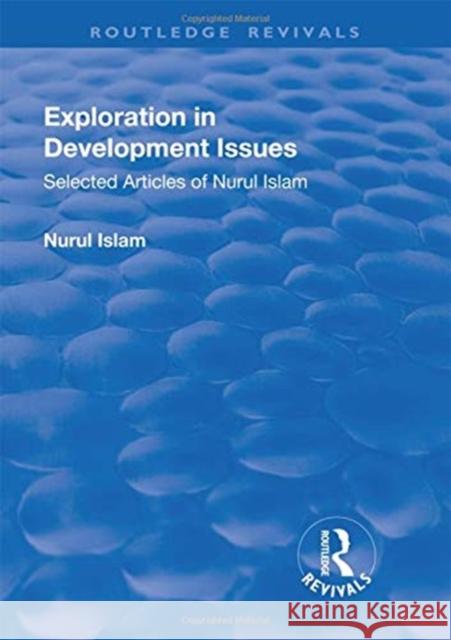Exploration in Development Issues: Selected Articles of Nurul Islam » książka
Exploration in Development Issues: Selected Articles of Nurul Islam
ISBN-13: 9781138741621 / Angielski / Miękka / 2019 / 580 str.
Exploration in Development Issues: Selected Articles of Nurul Islam
ISBN-13: 9781138741621 / Angielski / Miękka / 2019 / 580 str.
(netto: 246,67 VAT: 5%)
Najniższa cena z 30 dni: 236,70
ok. 16-18 dni roboczych.
Darmowa dostawa!
This title was first published in 2003. Nurul Islam, currently head of economic and social policy at the FAO/UN and a key advisor at the International Food Policy Research Institute, has been a renowned expert on economic development for the past thirty years. Over that time he has researched and written about a wide range of economic development issues, focussing mainly on policy. For the first time ever, his most important writings have been brought together in this volume, reflecting not only Professor Islam’s own views on particular issues, but also providing a unique overview of the key debates and discussions taking place among academic economist and policy analysts over the past three decades. The collection is divided into three main sections: trade and aid, development strategy, and food security, the section on food security being the most recent. It discusses food security in a broad sense, covering issues of availability and growth in food production, access or entitlement of individuals or households to basic food, and variability in food supplies and prices. In the section on Development Strategy, Professor Islam highlights how theoretical argument has veered away from organized ’development planning’ models which proved so important in the 1960s. He questions the role of models and policies throughout the decades and, following articles written in the 1970s or 80s, he includes articles he has recently completed, assessing the previous ones from his current perspective. In the final section, on Trade and Aid, he follows the academic debate on trade and exchange rate policies in developing countries from the 1960s to the progress of the WTO forums of today. This is a wide-ranging and thought-provoking volume. No matter whether the subject in question was examined in the 1960s or currently, Professor Islam provides a challenging and insightful analysis, and even the earliest articles retain relevance and will be of continuing interest.











